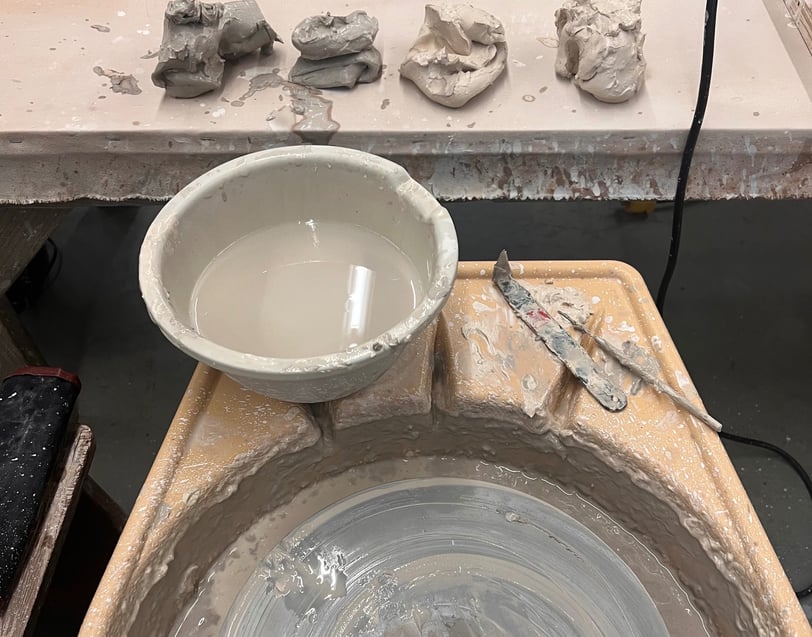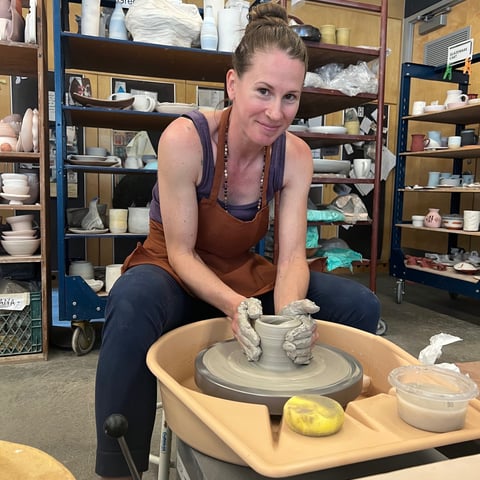How many hours to adequate?
Deciding how long we can struggle to learn until we either throw in the towel or accept mediocrity. How long until good enough is good enough?
POTTERY
9/8/20233 min read


Every time (or mostly every time) we set out to learn something new, there is what’s called a “learning curve.” It is suggested that there is a required period of time in which you must struggle to learn the skills necessary in order to be able to say that you have become successful at it. Unless you’re a freaking natural, you’re bound to struggle as you fumble through the process. At least, that has been my experience so far. I think the only thing that I was ever a natural at was running, and well, now I’m old and my knees hurt. And as such, running has become a thing of the past. I now choose more stationary hobbies in lieu of sprains and hospital visits.
Malcom Gladwell said that the key to achieving true expertise in any skill is 10 000 hours of practice. But what if you just want to be decent at something? what if, you don’t really care about becoming an expert? What if you just want to be adequate? Adequate enough not to destroy everything you touch? How many hours does it take then? If anyone knows this answer, please share it with me because I’m pretty sure with the number of hobbies I dabble in, I certainly do not have time to put in 10,000 hours to each and every one of them. I will happily take adequate, but I’m just wondering what will it take to get me there? I’ll admit I’ve lost track of how many hours I’ve spent trying to learn the pottery wheel, though I know it’s nowhere near 10,000. Heck it’s probably not even 1000, but I digress. Anyway, I had a day where I naively thought I had reached this status of “adequate”. I had one really good day at the pottery studio where I was magically able to centre my clay and pulled up a cup decently enough that I proudly shared online (on multiple platforms) the video of my success. I put it to music, it was more than adequate.
I returned to the studio a couple days later, with a false sense of confidence and proceeded to turn six balls of clay into five balls of mud and one cup. The cup was made somewhere in the middle of all my muddy failures, so it’s not like I struggled and learned. It was more like I made some muddy messes and then decided to slow it down and had one success, and then let it go to my head and made more muddy messes again. What is it about doing something well once that it tricks you into thinking that you’ve possibly turned the corner on that learning curve? You come back to do that thing with all the false confidence that the last success gave you, and suddenly you suck at it again, just like it was your first time? I’m not sure if there’s a name for it but I’m just going to say it’s not fair. How long do you keep trying at some thing before you decide that maybe it’s just not your thing and you should throw in the towel? That’s not the case here but I’m just asking for the sake of asking because I’m sure somebody’s wondering.
Despite some minor successes, at this time, I am unable to say that my skills on the pottery wheel are (to my standards) adequate, let alone decent. And I’m not even sure what the difference is between adequate and decent, but I’ll happily settle for somewhere in between. Because I love this art and I am too stubborn to give it up. After my collapsing mud failures, I like to clean up my messes angrily and quietly stomp around the pottery studio like a pouting child. It really is it’s own form of therapy. So I will continue to throw (relax, it’s a pottery term) and make piles of mud and maybe a mug or two in between. I hope you stay tuned here (and in your own life) for that one success that keeps you motivated to keep trying in the middle of all the failures.


